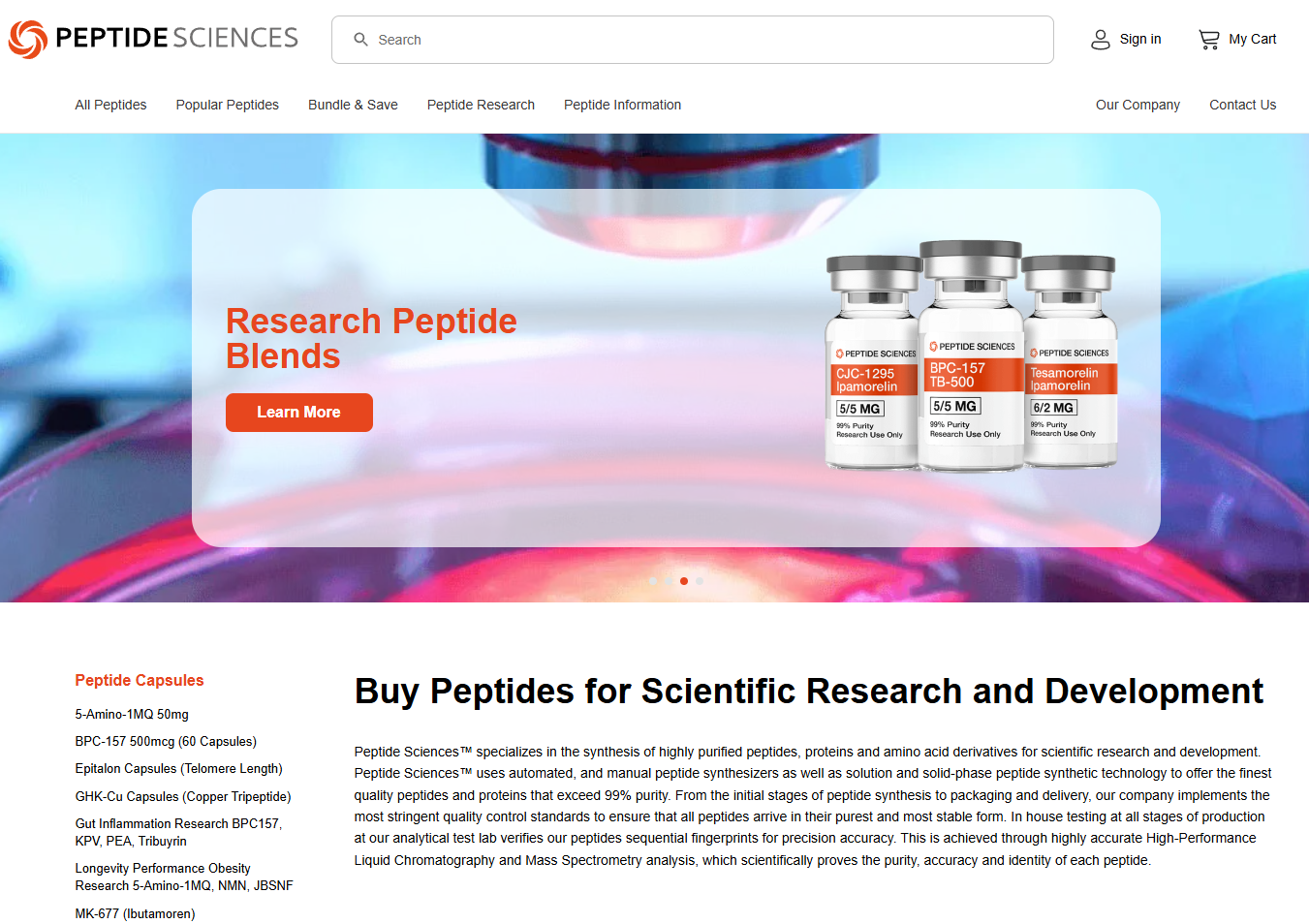The global peptide market has experienced significant growth in recent years, particularly in the fitness, research, and therapeutic sectors. While US-based e-commerce platforms like Peptide Sciences present themselves as premium peptide providers, industry insiders know that the majority of these products actually originate from Chinese manufacturers.

The Chinese peptide manufacturing industry has developed sophisticated capabilities through decades of investment in pharmaceutical infrastructure. Cities like Shanghai, Hangzhou, and Guangzhou now host some of the world's most advanced peptide synthesis facilities. These factories operate under strict GMP (Good Manufacturing Practice) standards and serve clients across North America, Europe, and Asia.
Several key factors explain why US peptide retailers predominantly source from China. First, Chinese manufacturers benefit from economies of scale that allow them to produce peptides at a fraction of Western production costs. The complete pharmaceutical ecosystem in China - from raw material suppliers to specialized equipment manufacturers - creates an environment where peptide synthesis becomes significantly more cost-effective.
Second, Chinese peptide factories have demonstrated remarkable flexibility in producing both standard and custom peptide sequences. While US and European manufacturers might focus on specific therapeutic peptides, Chinese suppliers typically offer catalogs with hundreds of different peptide variants, including research peptides, cosmetic peptides, and performance-enhancing peptides.
Quality control represents another area where Chinese peptide manufacturers have made substantial progress. Many leading facilities now hold multiple international certifications including ISO 13485 for medical devices and certificates from third-party testing organizations. Some have even obtained FDA registrations, though peptides sold for research purposes don't require full FDA approval.
The business model of US peptide e-commerce platforms typically involves purchasing bulk quantities from Chinese manufacturers, then repackaging the products with their own branding. These companies focus on marketing and distribution rather than actual peptide synthesis. The value proposition for American consumers includes competitive pricing (often 50-70% lower than US-made alternatives) and rapid availability of diverse peptide selections.
However, this supply chain arrangement does raise certain concerns. The lack of transparency about product origins sometimes creates confusion among consumers. Additionally, while reputable Chinese manufacturers produce high-quality peptides, the variability in quality among different suppliers means that US retailers must carefully vet their sources to ensure product purity and accuracy.
From a regulatory perspective, most peptides sold through these channels are marketed as research chemicals rather than therapeutic agents. This classification allows them to bypass certain pharmaceutical regulations, though recent FDA warnings suggest increased scrutiny of peptide sales channels.
The future of this supply chain appears stable in the short term, as Chinese manufacturers continue to invest in peptide synthesis technology while maintaining cost advantages. However, growing demand for locally produced peptides in Western markets might eventually shift some production back to the US and Europe, particularly for higher-value therapeutic peptides.
For researchers and consumers purchasing peptides through US e-commerce platforms, understanding this supply chain dynamic becomes crucial. While Chinese-origin peptides can offer excellent value, buyers should verify third-party testing certificates and purity reports regardless of the seller's claims. The most reputable US peptide retailers typically provide comprehensive analytical data to confirm product quality and composition.
